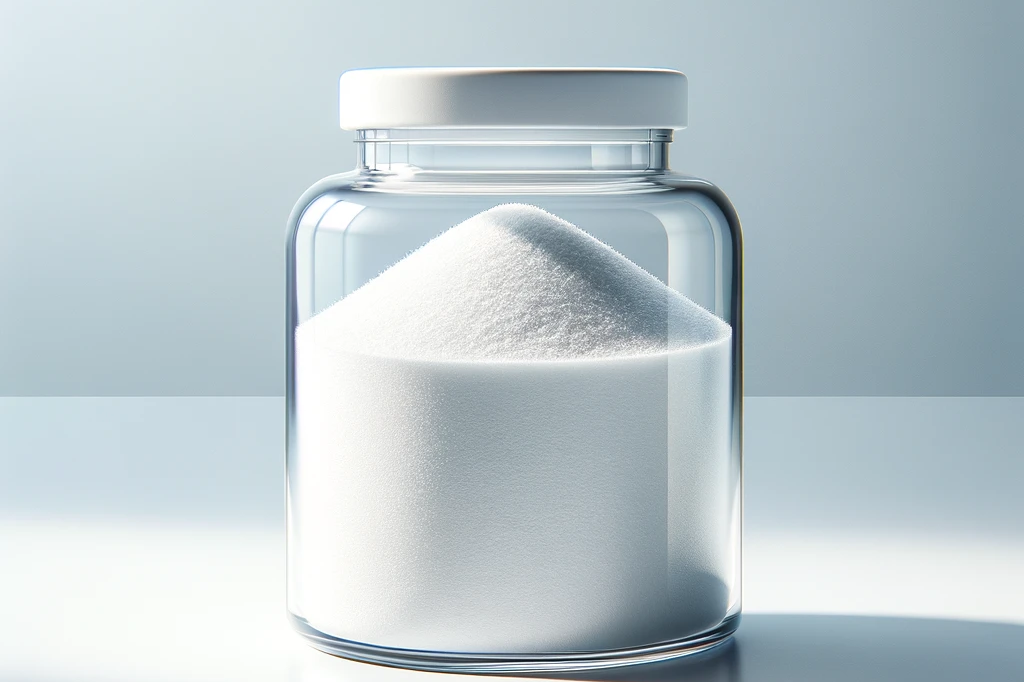Potassium sulphide

Potassium sulphide is a chemical compound that is rarely mentioned in discussions about dog nutrition. This is mainly because its use in food or pet food is not widespread, particularly because of the inherent properties and potential risks it poses. In this article, we explore what potassium sulphide is and evaluate its potential benefits and drawbacks in the context of dog nutrition.
What is potassium sulphide?
Potassium sulphide (K2S) is an inorganic salt consisting of potassium and sulphur. It is known for its unpleasant odor, similar to that of rotten eggs, and is used in industrial applications, for example in the manufacture of glass and other potassium compounds. Due to its chemical properties and the fact that it releases hydrogen sulphide, a toxic gas, on contact with moisture, potassium sulphide is largely avoided in food production or in products for human and animal consumption.
The role of potassium sulphide in dog nutrition
Theoretical consideration
In theory, potassium sulphide could be considered as a source of potassium and sulphur in the diet, two elements that are important for the health of dogs. Potassium is crucial for maintaining cell function, nerve transmission and muscle contraction, while sulphur is needed for skin, coat and nail health and as a component of some amino acids and vitamins.
Practical applicability
In practice, however, potassium sulphide is not used in dog nutrition due to its toxic properties and the risk of releasing hydrogen sulphide. The potential dangers far outweigh the theoretical benefits.
Advantages of potassium sulphide
Due to the properties and risks mentioned, potassium sulphide offers no direct benefits for dog nutrition. Any discussion of theoretical benefits is outweighed by the practical and safety concerns.
Possible disadvantages and risks
- Toxicity: The release of hydrogen sulfide makes potassium sulfide a potentially dangerous substance that should be avoided around dogs or in their diets.
- Health Risks: Exposure to hydrogen sulfide can cause respiratory problems, irritation of the mucous membranes and, in extreme cases, severe poisoning.
- No approval for use in animal feed: Potassium sulphide is not approved for use in animal feed and would violate regulations and guidelines for the safety of animal feed.
ConclusionPotassium sulphideis a chemical compoundthat is rarely mentioned in discussions about dog nutrition. This is mainly because its use in food or pet food is not widespread,particularly because of the inherent properties and potential risksit poses. In this article, we explorewhat potassium sulphide isand assess its potential benefitsand drawbacks in the context of dog nutrition.
What is potassium sulphide?
Potassium sulphide (K2S) is an inorganic salt consisting of potassium and sulphur. It is known for its unpleasant odor, similar to that of rotten eggs, and is used in industrial applications, for example in the manufacture of glass and other potassium compounds. Due to its chemical properties and the fact that it releases hydrogen sulphide, a toxic gas, on contact with moisture, potassium sulphide is largely avoided in food production or in products for human and animal consumption.
The role of potassium sulphide in dog nutrition
Theoretical consideration
In theory, potassium sulphide could be considered as a source of potassium and sulphur in the diet, two elements that are important for the health of dogs. Potassium is crucial for maintaining cell function, nerve transmission and muscle contraction, while sulphur is needed for skin, coat and nail health and as a component of some amino acids and vitamins.
Practical applicability
In practice, however, potassium sulphide is not used in dog nutrition due to its toxic properties and the risk of releasing hydrogen sulphide. The potential dangers far outweigh the theoretical benefits.
Advantages of potassium sulphide
Due to the properties and risks mentioned, potassium sulphide offers no direct benefits for dog nutrition. Any discussion of theoretical benefits is outweighed by the practical and safety concerns.
Possible disadvantages and risks
- Toxicity: The release of hydrogen sulfide makes potassium sulfide a potentially dangerous substance that should be avoided around dogs or in their diets.
- Health Risks: Exposure to hydrogen sulfide can cause respiratory problems, irritation of the mucous membranes and, in extreme cases, severe poisoning.
- Not approved for use in animal feed: Potassium sulfide is not approved for use in animal feed and would violate regulations and guidelines for the safety of animal feed.
Potassium sulphide is an example where the theoretical nutritional benefits do not outweigh the practical and safety concerns. In dog nutrition, there are numerous safe and effective ways to provide potassium and sulfur without resorting to potentially dangerous chemicals. Dog owners and breeders should always choose products that are specifically formulated for safe and healthy dog nutrition and come from reputable manufacturers. The health and well-being of our dogs depends on our ability to make informed decisions about their diet and care, and that includes avoiding substances like potassium sulfide that could harm them.
Potassium sulphide is one example where the theoretical nutritional benefits do not outweigh the practical and safety concerns. There are many safe and effective ways to provide potassium and sulfur in dog nutrition without resorting to potentially dangerous chemicals. Dog owners and breeders should always choose products that are specifically formulated for safe and healthy dog nutrition and come from reputable manufacturers. The health and well-being of our dogs depends on our ability to make informed decisions about their nutrition and care, and that includes avoiding substances like potassium sulfide that could harm them.
If you notice any signs of hypersensitivity or poisoning in your dog, you should see your vet immediately. We are not a substitute for a vet, but we try to be as accurate as possible. Every dog reacts differently and we recommend you get a second opinion or consult your vet if in doubt.
Stay healthy and take good care of your four-legged friend!😊
Similar to Potassium sulphide
Sodium sulphide (Na2S) is an inorganic compound that occurs in various forms, including hydrates. It is known for its use in the paper and pulp industry, in the manufacture of textiles and in...
Potassium selenite (K2SeO3) is an inorganic compound that contains selenium in an easily absorbable form. Selenium itself is an essential trace element that is essential in the diet of humans and...
Sodium selenite (Na2SeO3) is an inorganic compound of selenium, a trace element known for its antioxidant properties. It is often used in the diet of animals, including dogs, as a dietary supplement...
Potassium chloride (KCl) is the potassium salt of hydrochloric acid. It forms colorless, salty-bitter tasting crystals that dissolve well in water. Potassium chloride is approved as a food additive...



